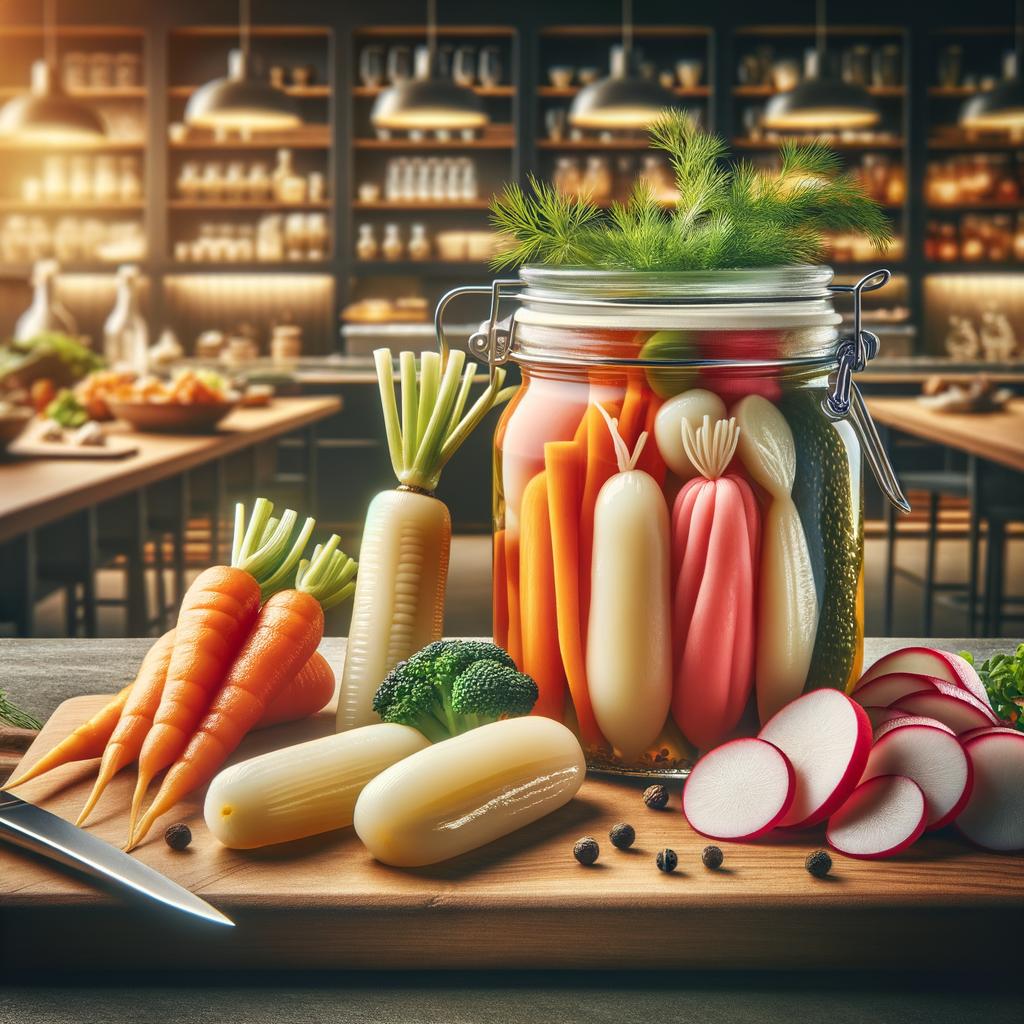Pickled Daikon and Carrots

Description
Pickled Daikon and Carrots, also known as Do Chua, is a delightful duo that fills your senses with a vibrant, tangy, and sweet aroma. Daikon, a type of radish, is a long, white, tubular root vegetable that has a crisp texture and a mild flavor. Carrots, on the other hand, are crunchy, sweet, and slightly earthy. When pickled together, these two ingredients create a symphony of flavors and textures. The daikon absorbs the pickling liquid, becoming tangy and slightly sweet, while the carrots maintain their natural sweetness, offering a delightful contrast. The unique characteristic of this pair is their ability to balance out rich and fatty foods, making them a staple in many Asian cuisines.
Primary Uses
Pickled Daikon and Carrots are commonly used as a condiment or side dish in Vietnamese cuisine. They are a key component in Bánh Mì, a Vietnamese sandwich, where they provide a refreshing crunch and tang to balance the savory meats. They're also used in various salads, spring rolls, and rice dishes. Beyond the culinary realm, in traditional medicine, daikon is believed to aid digestion and detoxify the body, while carrots are known for their high vitamin A content and potential eye health benefits.
History
The art of pickling vegetables originated thousands of years ago, as a method of preserving the harvest. The practice of pickling daikon and carrots, however, can be traced back to Vietnam, where it became a staple due to its ability to balance the flavors of rich, hearty dishes. Over time, the popularity of pickled daikon and carrots has spread globally, thanks to the worldwide love for Vietnamese cuisine. An interesting folklore associated with daikon is that in Japan, it's traditionally eaten on the night of the first day of the New Year to bring good health.
Nutritional Information
Pickled Daikon and Carrots are not only delicious but also packed with nutrients. Daikon is low in calories but high in vitamin C and potassium. It also contains enzymes that aid digestion. Carrots, on the other hand, are rich in beta-carotene, a form of vitamin A that promotes good vision. They also contain fiber, vitamin K, and antioxidants. The pickling process does add some sodium, but it also creates beneficial probiotics, contributing to a healthy gut. Compared to other pickled vegetables, this duo has a lower calorie count and a more diverse nutrient profile, making it a wholesome addition to your meals.

